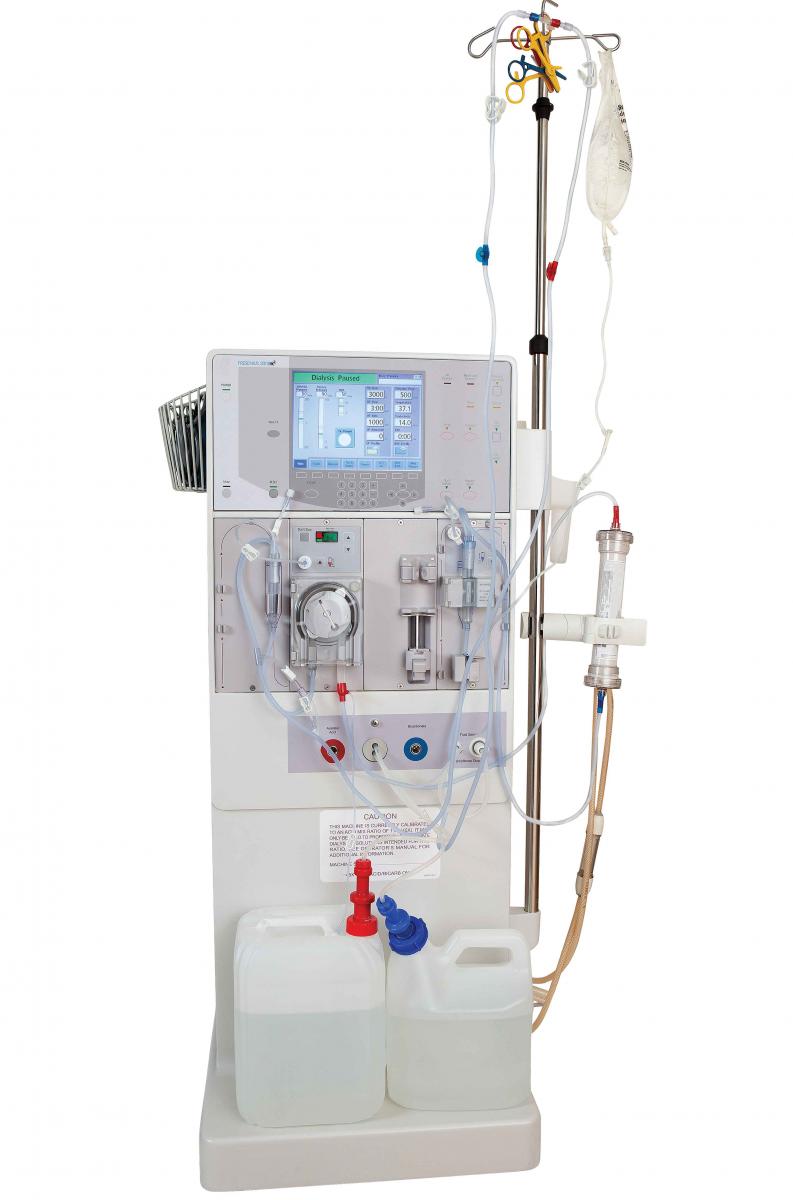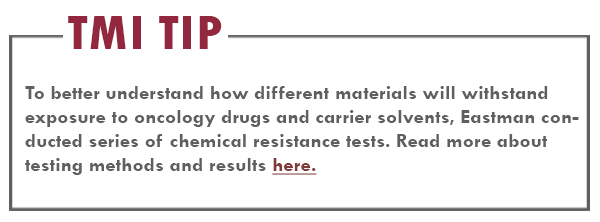Polymer compatibility with oncology drugs
As part of the continued effort to improve cancer treatment, pharmaceutical companies are developing new and improved oncology drugs. However, advanced oncology drugs and  carrier solvents challenge the chemical resistance of polymers used in delivery devices. Such conditions can prevent devices from working properly or cause them to fail prematurely. When there is a pattern of compromised device performance or life cycle, regulatory agencies may tell manufacturers to stop using certain materials to protect patient safety.
carrier solvents challenge the chemical resistance of polymers used in delivery devices. Such conditions can prevent devices from working properly or cause them to fail prematurely. When there is a pattern of compromised device performance or life cycle, regulatory agencies may tell manufacturers to stop using certain materials to protect patient safety.
 carrier solvents challenge the chemical resistance of polymers used in delivery devices. Such conditions can prevent devices from working properly or cause them to fail prematurely. When there is a pattern of compromised device performance or life cycle, regulatory agencies may tell manufacturers to stop using certain materials to protect patient safety.
carrier solvents challenge the chemical resistance of polymers used in delivery devices. Such conditions can prevent devices from working properly or cause them to fail prematurely. When there is a pattern of compromised device performance or life cycle, regulatory agencies may tell manufacturers to stop using certain materials to protect patient safety.Polymer selection is critical to a medical device. Engineering polymers offer many advantages for infusion and blood contact devices compared with other materials. Advantages include design and color flexibility, aesthetic appeal, reduced weight, corrosion resistance, and clarity. But polymers that have a low level of compatibility with chemicals—such as lipids, disinfectants, and specific oncology drugs and solvents—can experience environmental stress cracking or premature device failure in the presence of applied or residual stress.
It’s important to evaluate polymers for chemical resistance to keep patients safe and ensure device longevity. Eastman Tritan™ copolyesters have good overall chemical resistance and provide an attractive alternative to polycarbonate (PC) or acrylonitrile-butadiene-styrene (ABS) for oncology drug delivery devices. For closed-system transfer devices and other infusion devices, Tritan can be a candidate for molding devices that are compliant with safety alerts from regulatory agencies such as the Food and Drug Administration (FDA) and the Institute for Safe Medication Practices.
Eastman technical specialists can help you early on in your process to produce high quality medical devices. Contact us to learn more about the attributes of Tritan and how it compares to other commonly used materials when tested for chemical compatibility.






 Close
Close


